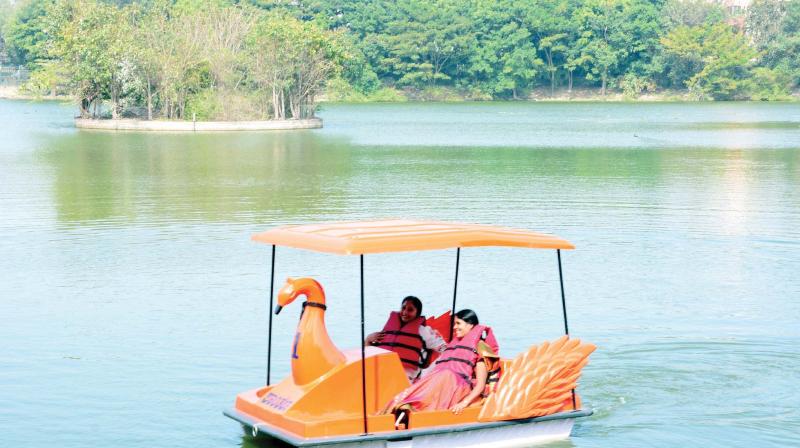Bengaluru: Rejuvenated but we still can’t drink lake water
One of the major reasons behind the worsening water quality is the entry of sewage into the lakes.

Bengaluru: Despite the money being allotted towards the rejuvenation of lake and protest marches being organised against the encroachment of water bodies and their catchments, not a single lake or tank within the city limits is free from pollution.
The Water Quality Index (WQI) from April to June released by the Karnataka State Pollution Control Board has confirmed that major lakes such as Madiwala, Jakkur, Sarakki and Puttenahalli have unsatisfactory water quality.
One of the major reasons behind the worsening water quality is the entry of sewage into the lakes.
Manoj Kumar, Member Secretary, KSPCB, said, “The major source of pollution is sewage. The city generates 1,400 mld of sewage, considering 80% of the water supplied to the city is sewage. Out of this, the BWSSB has the capacity to treat only 50% of the sewage. Once the STP’s will be fully functional by 2020 things will improve. The implementation of the zero liquid discharge policy for the apartments is also being adhered to.”
The environmentalists are of the view that rejuvenation design and its execution are flawed.
“The water quality report proves that there are flaws in the way rejuvenation is executed. It also proves the flawed Detailed Project Report (DPR) that is prepared. The unscientific manner by which the rejuvenation is carried out with only cosmetic changes and no real water quality issues being addressed will lead to disaster,” said Ram Prasad, co-founder and convener, Friends of Lakes.
One of the solutions he highlighted was to have a bridge between government departments with integrated water management. “The technical committee should be revamped and include hydro-geological engineers, environmental engineers, civil engineers, limnologist, eco-hydrologist, toxicologist etc,” he added.

